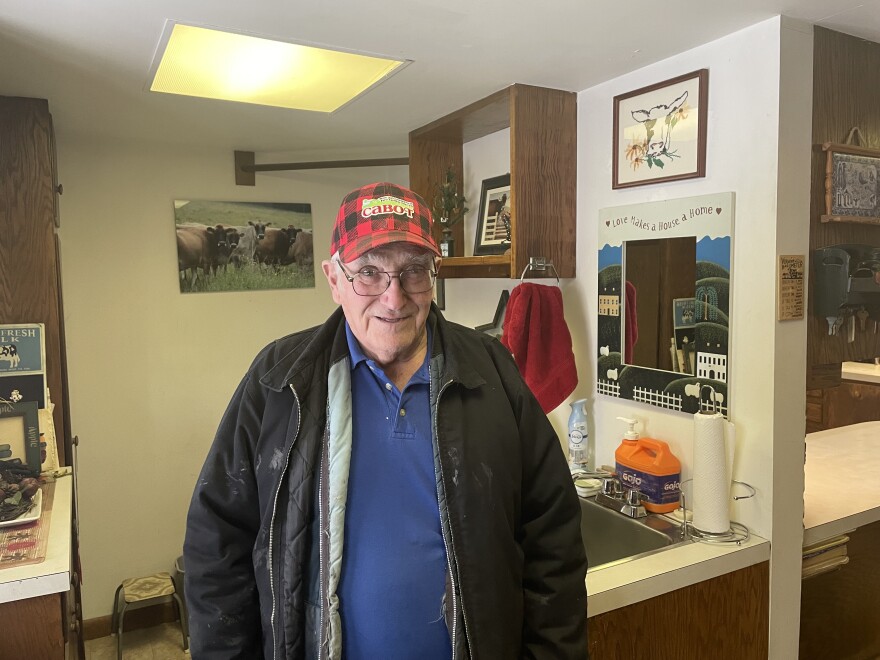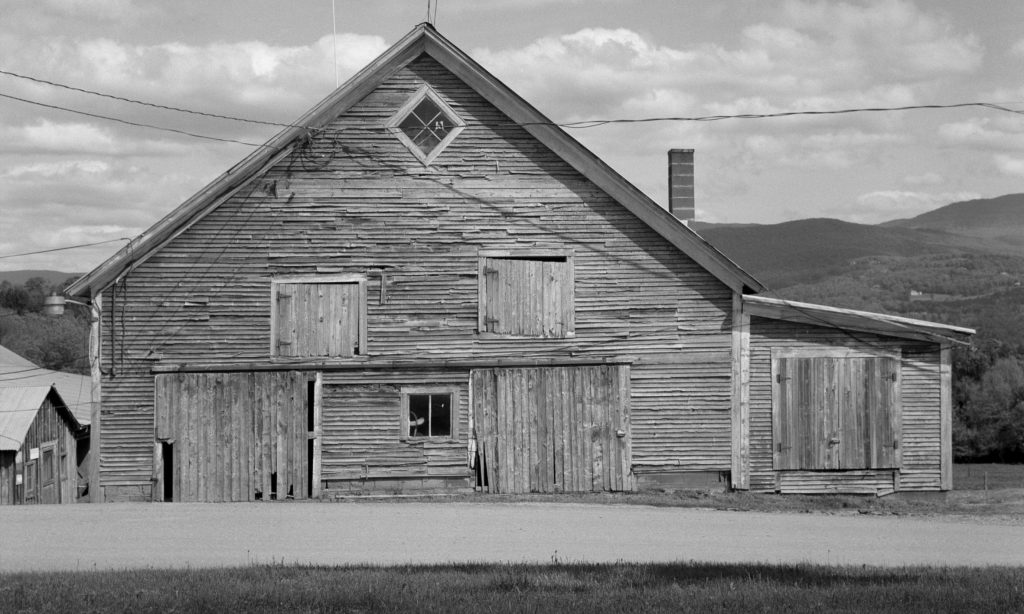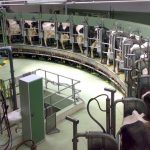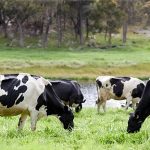
“There was 130 Jersey cows in there, dry or milking, and they’re all gone,” farmer Paul Percy told me on the phone after the fire.
“There actually was a few in there that hadn’t calved yet, that we’d brought up from one of the other barns,” he said. “I think it was about a dozen that were all ready to calve in the next two weeks. But that isn’t going to happen.”
We talked for about 15 minutes, then I thanked him for his time, and we hung up.
That was almost a year ago, long enough for the leaves to come out on the trees, fall, and be covered by snow again. I wondered about Paul Percy from time to time — had his insurance come through? Did he get more cows? Did he rebuild the barn?
His farm is one of about 500 dairy farms left in Vermont, down from thousands just 60 years before. Many of the farms that remain are in precarious positions — when disaster strikes, it can be hard to come back from.
So a few weeks ago, I went to Stowe to pay Paul Percy a visit, and see how things were going.

He greeted me at the door wearing jeans and a blue polo with the Agri-Mark logo. His eyes were bright behind a pair of wire-rimmed glasses.
He’s in his 80s, and has lived in this old farmhouse his entire life. We sat down in the living room, under a window that looks out on where the barn used to be.
“You’d hardly know there was a barn down there. We had that done about three weeks after the fire,” he said.
Percy has other property in town, including a barn where he keeps about 350 cows. He said they’ve concentrated on that, but still, they’ve lost money.
“There’s no question about it, income is down,” he said. “Expenses are down some, too, because I’ve got one less employee and, you know, we’re not spending money taking care of [the cows], the light bill and all that, it’s down. But again, I miss it. But — I don’t talk about this because it bothers me a little bit — they started a GoFundMe. I don’t know whether you ever heard about this or not. But they started one for us. And I didn’t know anyone started it, I didn’t know what was happening, I didn’t know what was going on, I couldn’t believe it. But people donated a lot of money to make it all work.”
“How did that feel?” I asked.
“Well,” Percy said, “in a way it bothered me, because it’s like a — like a kind of charity thing, sort of. Somebody needs help. And, you know, to farm and build what we need to, we probably needed the help. But I had insurance on that barn — ‘course never have enough — but I had insurance, had insurance on the cattle. We can build barns and fix things back up. It’s really — it’s really an interesting town to live in. I had no idea that people in this town wanted farmers here as much as I think they do today.”
“Are you saying because of how the character of Stowe has changed over the years, and how it is today, that you were surprised people came together to help you?” I asked.
“Right. You know, there used to be a lot of farms here. And they’re all gone. There’s only me and two others left in Stowe, and there used to be like 125,” Percy said. “But they’ve been disappearing over the years, and they’ve really disappeared lately. But people — they don’t want us to leave. They want farming to be here.”
“Why?” I asked.
“Because of the character, that it makes the town,” he said. “You know, it warn’t the barn that’s the beauty, it’s the cows out in the fields. It’s the meadows. I’m convinced that most of the people appreciate Stowe and make Stowe what it is because a lot of this open land and open meadows and the way the whole thing is designed. And the zoning is set up to keep that that way, to keep it open.”

I asked: “Has having this happen changed how you think about the future of your farm, and maybe Vermont farms in general?”
“Oh I think farming in the state of Vermont is going to thrive,” Percy said. “Because there’s a lot of good land that grows grass, you don’t have to irrigate. And there’s a lot of good, modern farms in the state of Vermont. There’s some big farms in the state of Vermont. Now, I don’t think you’re going to see very many 15-20 cow farms, 40 cow farms. I think it’s got to be a special situation. Although there’s a 40-cow farm here in Stowe, the boys have been there for a long time, and when they retire or stop farming, I don’t think that farm will continue.”
“What do you want the future of your farm to be?” I asked.
“I’ve got a boy, Ryan, that is into farming, but he’s got to decide what he’s going to do with it,” he said. “He’s got two girls, and who knows whether they’ll want to be farmers or not, or whether they’ll find somebody that wants to be a farmer. Only the future will tell that.”
I asked: “When you sit in your kitchen, or in this room here, and you look out the window to where the barn used to be, what do you think about?”
“Well, I thought about all the years it’s been there, and all the times I’ve gone down there, and all the problems and late meals,” he said. “But there’s a beautiful view now that the barn’s gone. There really is. This fall, it was gorgeous with all the colors of the leaves you know, and the green background down there. But it’s sad. It’s sad.”
Percy hopes to build a new barn, not far from where the old one was.


















